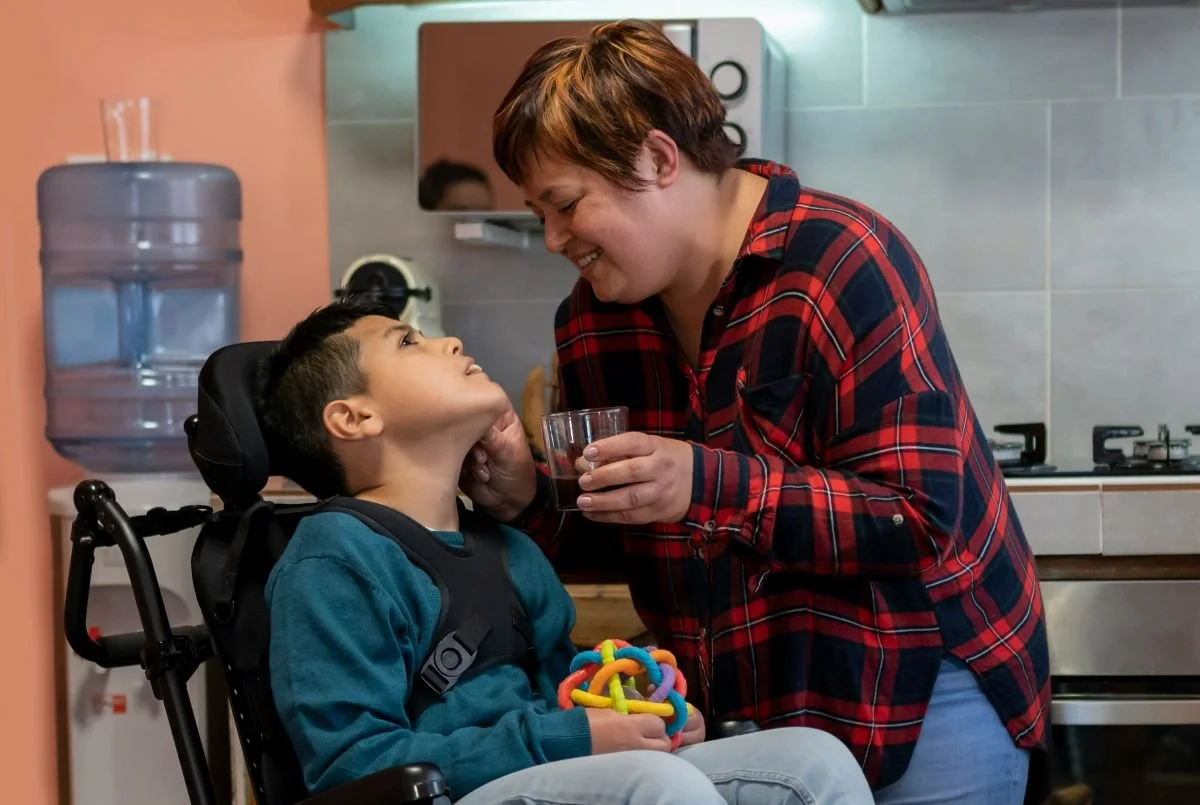
Autism Treatment
Owl & Eagle Health and Wellness
Holistic Psychiatry, Psychotherapy, and Transcranial Magnetic Stimulation (TMS) in Golden and Denver, CO and serving Greater Colorado via telehealth
We offer expert diagnostic evaluations and cutting edge treatments for psychiatric conditions such as Autism, ADHD, Eating Disorders, and Addiction. Medication management, TMS, psychotherapy, nutrition, and more. Call us today and start your journey to mental wellness! 303-736-9697
Autism
Autism is a neurodevelopmental condition that causes differences in thinking, behavior, and communication relative to the general population. Parents often recognize differences in children prior to age two, although Autism may not be diagnosed until much later. People with Autism can have distressing symptoms and difficulty in social situations. We can help.
At Owl & Eagle Health and Wellness, our team of board-certified psychiatric nurse practitioners treat people ages 13 and up with Autism. We use a team-based, holistic approach combining up-to-date psychiatric treatments, psychotherapy, and integrative care. We can help you manage any distressing symptoms, help you and others understand your differences, help you advocate for yourself at school and work, and help you access any needed services. This holistic and integrative approach to treatment will not only treat your symptoms but will help you improve your overall mental and physical health and well-being.
For skilled assessment and holistic psychiatric treatment for Autism in children, teens and adults, either in person at our offices convenient to the Denver Metro area, or via telehealth throughout Colorado, Contact Us with questions or Book Now to request an intake appointment today. 303-736-9697
Autism Q&A
How common is Autism?
In the US, 1 in 36 children and 1 in 45 adults have Autism. Other psychiatric conditions frequently co-occur in people with Autism, including ADHD, OCD, PTSD, Tourette’s, and gender dysphoria.
Why should I seek treatment for Autism?
The more a person with Autism’s thinking and behavior differ from neurotypical people’s, the more likely they may be to experience discrimination, and the more difficulty they may have in predominantly neurotypical spaces. For instance, people with Autism may struggle in school, at work, and in relationships. When Autism is diagnosed in childhood, treatments and services typically focus on helping the child learn to “fit in” socially.
When Autism is not diagnosed until adulthood, people have often felt different for many years, and may have experienced discrimination and not known why. Being diagnosed as an adult can help people better understand and advocate for themselves, and can help friends, family, and colleagues understand them better as well. In both children and adults, psychiatric treatment for Autism can help reduce distressing symptoms and improve quality of life.
What causes Autism?
The causes of Autism are not fully understood, but some risk factors include:
Older parental age
Having family members with autism
Having a genetic condition, such as Down Syndrome or Fragile X Syndrome
Perinatal and birth complications, such as low birth weight
What are the symptoms of Autism?
Symptoms of Autism include:
Social Disconnection:
Discomfort with or inability to engage in prolonged eye contact.
Difficulty imagining or understanding others’ perspectives, thoughts, and feelings.
Difficulty noticing or interpreting other people’s facial expressions or body language.
Infrequent sharing of emotion or enjoyment with others.
Difficulty developing, maintaining and understanding relationships.
Feeling left out or having trouble fitting in with groups of people.
Desire to isolate from others and at the same time feeling lonely.
Communication Differences:
Use of unique tone of voice, words, or phrases
Discomfort with small talk or unnecessary chit-chat
Needing a high level of directness and honesty in communication
Difficulty starting conversations and keeping conversations going
Not knowing when to speak and when to let the other person speak
Talking about own interests at length, without allowing the other person to interject
Not noticing when another person is uncomfortable or losing interest in a discussion
Tendency to use facial expressions or body language that others may see as odd or inappropriate to the situation
Repetitive Behaviors:
Need to adhere to strict routines
Preference for belongings to stay in the same place, order, and arrangement
Anxiety or anger due to changes in routines or when belongings are moved or rearranged
Intense preoccupations or obsessions with certain topics
Ability to develop encyclopedic knowledge of topics and discuss them in minute detail
Repetitive, stereotyped motor activity such as rocking or flapping hands
Echolalia, or repeating words or phrases
Reactivity to Sensory Input:
Unique sensitivity to textures, temperatures, sounds, bright or flashing lights, colors, odors, and tastes
Tendency to experience sensory overload, or anxiety and agitation in environments with excessive sensory stimulation
Meltdowns:
Excessive changes in environment or routine, sensory overload, or interpersonal stress can cause agitation and angry or emotional outbursts, known as meltdowns.
Meltdowns can be very distressing and can cause problems in school, atwork, or in relationships.
Masking:
People with Autism sometimes learn to hide some of their differences or mimic social behaviors and communication patterns of neurotypical people to fit in or be accepted. This is called masking.
Although masking can help with fitting in, it often takes a lot of energy and can be exhausting.
Burnout:
Exhaustion due to prolonged masking or sensory overload is often referred to as autistic burnout.
Burnout can cause increased difficulty with communication, emotional regulation, completion of tasks, decision making, tolerance of sensory stimulation, and trouble completing self-care or other regular activities.
Burnout can cause fatigue, anxiety, depression, increased repetitive behaviors, insomnia, and more frequent or intense meltdowns.
How is Autism treated?
At Owl & Eagle Health and Wellness, our team of board-certified psychiatric nurse practitioners have experience and expertise in treating Autism. We will work as a team to ensure that you get the best possible care. We will conduct a thorough psychiatric diagnostic evaluation and neurocognitive testing to accurately diagnose Autism and any co-occurring mental health conditions you may have. We will work with you to create a holistic treatment plan combining psychiatric medications, psychotherapy, and evidence-based integrative treatments, including dietary recommendations, stress management, sleep hygiene, exercise, vitamins, supplements, yoga, meditation, and breathwork.
Medications frequently used to treat symptoms associated with Autism and common co-occurring conditions include antidepressants, anxiolytics, mood stabilizers, antipsychotics, sleep medications, and stimulant and non- stimulant medications for concentration. Genetic testing can help identify which medications are most likely to be effective and well-tolerated for you. For symptoms that do not respond sufficiently to these treatments, Transcranial Magnetic Stimulation (TMS) can be very helpful. We will make sure to consider and respect your individual needs and preferences.
People with Autism have a right to certain accommodations at school or work when appropriate. Accommodations can make school and work much more enjoyable and much less stressful and exhausting. We can help you determine which accommodations would be helpful for you, and can complete letters and paperwork needed when requesting accommodations.
We can also help you access special services when needed, such as occupational and speech therapy, job training, help with finding employment, housing assistance, and help with housework, shopping, or transportation. Our personalized, holistic treatment can help you effectively manage symptoms of Autism and co-occurring conditions, improve your relationships, and succeed at school and work, while greatly improving your overall health, well-being, and quality of life.
If you would like to learn more about psychiatric evaluation and holistic psychiatric treatment for Autism for children, teens, and adults at Owl & Eagle Health and Wellness, Contact Us with questions or Book Now to request an intake appointment today.
Appointments are available either in-person in our offices in Golden or Denver, or via telehealth anywhere in Colorado. We look forward to meeting you!
Sources
https://www.mentalhealth.gov/basics/mental-health-myths-facts
https://mhanational.org/mentalhealthfacts https://guide.autismspeaks.org/
https://docs.autismspeaks.org/self-empowerment/ https://nationalautismassociation.org/
https://www.nami.org/Learn-More/Mental-Health-Conditions/Related-Conditions/Autism
https://askjan.org/disabilities/Autism-Spectrum.cfm
https://www.dol.gov/agencies/odep/program-areas/autism
https://www.nimh.nih.gov/health/publications/autism-spectrum-disorder
https://www.nimh.nih.gov/health/topics/autism-spectrum-disorders-asd

“If you got rid of all the autism genetics, you wouldn’t have science or art. All you would have is a bunch of social yik yaks.”
- Temple Grandin







